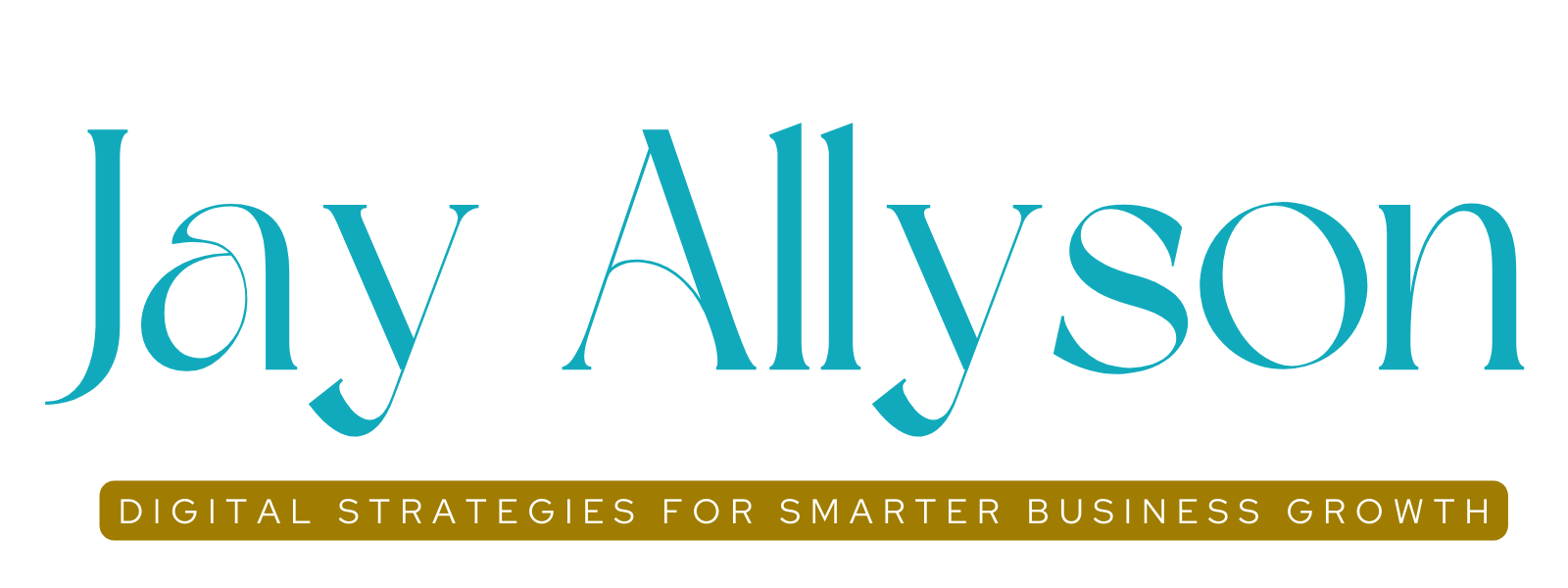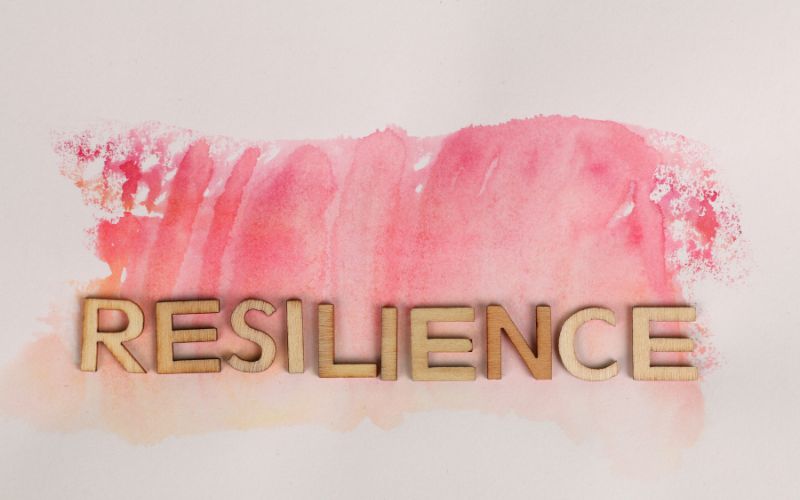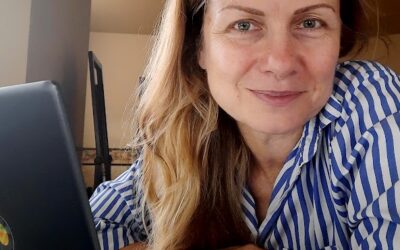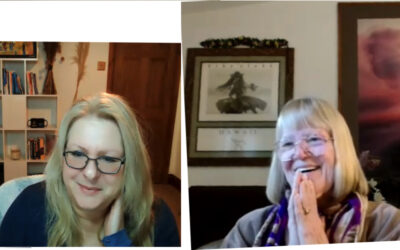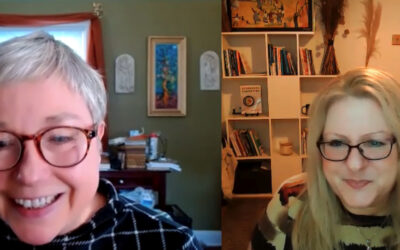Welcome to what is a very special episode of the Leverage Business Podcast where we’re summing up resilience building strategies shared throughout our “Rising Resilient” series. And I have to say, what an incredible journey it’s been. Over the past few months, we’ve had the privilege of hearing from 20 remarkable women entrepreneurs and leaders who’ve shared their insights and wisdom about what it truly means to rise resilient.
I’m more than excited to share a synthesis of this wonderful Rising Resilient series, where we’ve had access to the resilience building strategies, insights and perspectives shared by 20 female entrepreneurs, who I’ve had the privilege to work with as their coach and consultant. So grab a cup of coffee – or tea in my case – and let’s dive into the transformative wisdom that has emerged from these conversations.
PREFER TO LISTEN?
Jay Allyson
Business Resilience for Women Rising Resilient Decoded from Interviews with 20 Successful Female Entrepreneurs
For this our 4th for the Leveraged Business Podcast show, we’ve focused on “Rising Resilient” as a series theme. I put together what one guest described as a “brain trust” of 20 incredible women entrepreneurs and leaders.
Resilience is a topic that’s so near and dear to the hearts of entrepreneurs, business owners, and high-achievers alike. And while each conversation brought its own unique perspective, some powerful themes emerged that I want to explore with you today.
Through their stories and hard-won lessons, you’ve been treated to a rich tapestry of wisdom on what it means to tackle the challenges and changes in our lives and businesses with confidence, compassion, and courage.
So, I’m more than a little excited to dive even deeper and share a synthesis of these wonderful conversations, where we’ve had access to the insights and perspectives shared by 19 female entrepreneurs, plus myself – all business owners who I’ve had the privilege to work with as their coach and consultant.
Overall, the interviews paint resilience as a multi-faceted capacity developed through both inner work and external practices, relationships and environments. Resilience enables entrepreneurs to not only survive challenges, but to intentionally learn, grow and innovate through them.
Resilience as a Multi-Dimensional Construct
As a backdrop, in my introduction to the series (episode 101), I emphasised that the best resilience building strategies are proactive, multi-dimensional constructs, one that’s essential for entrepreneurs to thrive amidst constant challenges. The series has aimed to inspire you, and celebrate your achievements, giving you real examples and practical strategies to do so, so you can truly rise resilient.
With that in mind, self-compassion and self-awareness were highlighted as foundational for building our resiliency. Guests talked about acknowledging emotions, working through self-doubt, and avoiding self-judgment. Many emphasised the importance of supportive relationships, whether mentors, colleagues, friends or family, to provide perspective and encouragement through challenges.
Purpose and values were key anchors amidst uncertainty. Reconnecting to one’s mission and ideal impact helped entrepreneurs persevere and adapt. Daily practices like journaling, meditation, time in nature, and joyful movement were essential for managing stress, recharging energy and maintaining a resilient mindset.
At an organisational level, resilience required open communication, psychological safety to discuss risks, and a culture that embraced a “learn and adapt” approach to setbacks.
As we explored the topic of resilience, there were many highlights from my interviews with our guests, both from their own personal experience and techniques, and in how they support their own clients.
So let’s get into the details and shine some light on this collection of really valuable insights and advice, that all of us can use to expand our current resilience building practices.
The Power of Personal Conversations
Throughout these conversations, I made a conscious effort to draw out the nuances and complexities of resilience. Rather than just asking for surface-level advice or strategies, I probed my guests to share the personal stories, mindset shifts, and hard-earned lessons that shaped their understanding of this topic.
For example, when speaking with Susan Schramm (episode 120), I asked her to unpack the difference between “adaptable” and “agile” – two terms that are often used interchangeably in the business world. Her response highlighted the crucial distinction between the operational and human elements of resilience.
She explained. “Agile allows you to use a process for moving forward, but the Adapting is where you go from seeing this around you and internalising it in a way that doesn’t create fear. It’s the adapting that allows you to calm your brain down and say: Okay, this is what we know now, how am I going to take that and adapt?”
I also made a point to encourage my guests to share their personal experiences and struggles with resilience. Annika Ek, a holistic health coach and entrepreneur (episode 112), opened up about the burnout she faced early in her career, and how she learned to cultivate more self-compassion and sustainable rhythms in her life and business.
The rhythm and style of these interviews was intentionally conversational and exploratory. Rather than just rattling off a list of tips or strategies, I wanted to create a space for my guests to dive deeper into their personal journeys and unpack the nuances of resilience.
This meant leaving room for tangents, unexpected insights, and even a bit of playful banter. I found that when I invited my guests to share their stories and perspectives with vulnerability and authenticity, the most valuable and hard-hitting lessons emerged.
For example, when speaking with Susan, I was struck by her emphasis on the importance of “calm” as a superpower for resilience. As she put it: “My dad was a turnaround specialist, and he said there are two things you can bring to a crisis: calm and humor. And he said, those two things in the middle of the fray, can really help people move forward.”
This insight resonated deeply with me, as I’ve often witnessed the power of a calm, centred presence in the face of chaos and uncertainty. It’s a quality that’s easy to overlook, but can be truly transformative in building resilience.
Hard-Hitting Perspective Shifts for Entrepreneurial Resilience
Throughout the series, my guests shared a wealth of hard-hitting insights that I believe are essential for any entrepreneur or business owner to internalise. One that particularly stood out to me came from Mia Šindolić (in episode 106), who said:
“[To me] fear is an instinct more than a feeling. And there were some very practical moments when I was letting go of fear – some more dramatic in life and some less dramatic. I realised this is what it feels like to be growing. It’s not fear; it’s just because this is me growing.”
This perspective shift – from viewing fear and discomfort as enemies to be conquered, to recognising them as natural by-products of growth and evolution – is so powerful. It speaks to the idea that resilience isn’t about perfection or the absence of struggle, but rather the ability to move through it with grace and intentionality.
Another crucial insight came from Suzanne Magee (episode 119), who emphasised the importance of purpose and values in navigating uncertainty. She said: “If you give people the wrong goals or you don’t actually involve them in the goal-setting process, then you’re forcing someone to sign up for something they may not have signed up for.”
This ties back to the themes of alignment and self-awareness that emerged throughout the series as key to all resilience building strategies. When we’re clear on our purpose and values, we’re better equipped to make decisions that serve us, even in the face of adversity. It’s about having that internal compass to guide us, rather than just reacting to external pressures and expectations.
One thing that listeners might have missed, or underestimated the importance of, is the role of connection and community in building resilience. As I mentioned earlier, many of my guests spoke about the power of leaning on mentors, peers, and support systems.
Susan Schramm (episode 120) shared how she makes a point to “bring different perspectives” into an organisation’s decision-making processes. She explained: “The idea of having a regular rhythm of talking about ‘what if’ – and what if these things were to happen, what would we do – can help give voice to fears or concerns and help actually invite people to see beyond their current environment.”
This speaks to the value of diverse viewpoints and the importance of creating spaces for honest, vulnerable dialogue. It’s not just about surrounding ourselves with cheerleaders, but rather cultivating a community of compassionate challengers who can help us see blind spots and explore new possibilities.
3 Key Concepts for Personal and Professional Resilience
Some key concepts emerged that are helpful to how we think about and build our resilient practices. They provide great reminders for all of us striving to keep doing what we do, maintain our drive and motivation through setbacks, and take time to enjoy the fruits of our labour and accomplishments.
Here are three overarching concepts to underpin resilience building strategies:
1 – the evolution of resilience
2 – the human side of resilience
3 – building resilience systems.
Let’s gather up what our entrepreneurs shared in each one.
Concept 1: The Evolution of Resilience
One of the most striking insights from our conversations was how our guests expanded and deepened the traditional understanding of resilience.
Carmen Morrison [episode 102] shared a profound insight about the foundations of resilience, noting that “when we have secure connections with others, that’s the number one thing for resilience around the world.” She emphasised that it’s not just about individual strength, but about having people you can “kind of fall apart with” when needed.
This connects beautifully with what Christina Becker [episode114] shared about “soul making.” She spoke about how resilience isn’t just about surviving challenges but about using them as opportunities for deeper personal growth and understanding.
Susan Schramm [episode 120] brought this evolution of resilience into the organisational context, emphasising that “resilience isn’t only a thing you just do once in a while; it’s a culture that has to be nurtured.” She shared how organisations that thrive have “resilient leaders at all levels, not just at the top.” Her insights about organisational resilience help us build supportive environments.
Jo Hafey [episode 109] emphasised that “we need to match our energy output with how much energy we’ve got within.” Her insights about working with natural rhythms showed us how sustainable resilience requires understanding and respecting our own patterns. This understanding helps us move from merely surviving to actually thriving.
Annika Ek [episode 112] reinforced this by explaining that “we need both – we need our health, which is that driver or motor, so we can actually fill our lives with those things we’re called to do.” Her focus on vitality shows how physical wellbeing underpins resilience.
Berry Kruijning [episode 116] offered a particularly insightful perspective about adapting versus changing. She noted that “there’s this balance between optimism and more positive outlook… I believe in going through the difficult feelings and all the emotions that come with resiliency building.” She emphasised how this is part of the “rite of passage” to building true resilience.
What’s fascinating is how this evolved understanding of resilience shows up across different contexts. Suzanne Magee [episode 119] spoke about career resilience, noting that “careers are not linear anymore” and emphasising how “having a mentor who believes in you” can help you navigate the inevitable ups and downs.
The key insight emerging from these conversations is that resilience isn’t just about bouncing back – it’s about developing the capacity to grow through challenges while staying true to who we are.
Concept 2: The Human Side of Resilience
A powerful theme that emerged across our conversations was how deeply personal and relational true resilience is. Our guests highlighted again and again that resilience isn’t just about strategies and systems – it’s about authentic connection, self-awareness, and alignment with our values.
Sophie Lechner [episode 118] brought this home when she discussed the importance of mission-driven work. She explained that “when you put your mission at the centre of everything, it changes not just how you do business, but how you handle challenges”. She emphasised that: “If we don’t start with who we are, what we want to be, who we want to be, and the life that we want… it’s all gonna go awry.”
This connects powerfully with what Irma Jennings [episode 110] shared about connecting with our authentic selves when we connect with others. She highlighted that emotions are just messengers. They tell us, not something about outside reality, they tell us about how we’re being affected by the things that are happening around us. She emphasised how crucial it is that her clients feel deeply listened to, without judgment.
Linda Lalicata [episode 104] reinforced this human-centred perspective, particularly in career and business contexts. She emphasised that “if you love the work that you’re doing, that’s so core to whether you’ve got that overall fulfilment in your life.” She spoke about how often we need to “unlearn some of the kind of more technical skills and be more strategic.” Her insights about career development and resilience highlighted how self-awareness is crucial, particularly when facing periods of transition or uncertainty.
Barbara Walsh [episode 108] offered valuable insights about relationship-building in organisations, emphasising that “relationships are what can cause, both encouragement at work, but also stress at work.” She noted how the connections we form at work are crucial to our resilience and success.
Margo Mansfield [episode 105] brought a powerful dimension to this human side of resilience when she spoke about spirituality and purpose. She shared that “the evolution of my business is really the story of my evolution.” She emphasised how personal transformation is often the foundation for professional resilience, explaining that “letting go of fear” was key to moving forward.
Mia Šindolić [episode 106] highlighted how this human element shows up in communication and client relationships. Mia shared that “intuition is my main strength in working with people,” showing how our natural strengths can become cornerstones of our resilience. Her approach to working with clients demonstrated how authentic connection contributes to sustainable practice.
Concept 3: Building Resilient Systems
Our third major theme focuses on creating sustainable practices and systems that support ongoing resilience – both personally and organisationally.
Stephanie Slocum [episode 115] emphasised that “resilience isn’t just about the individual – it’s about creating environments where people can thrive.” She spoke about how important it is for organisations to support women’s groups and enhance communication skills to retain talented people. Her insights were particularly relevant for women in STEM fields, discussing how retention and advancement require both individual resilience and supportive organisational systems.
In episode 107, Lily Woi brought us insights for building sustainable professional networks, emphasising the importance of authentic connection and meaningful relationships in creating resilience. She focused on how conscious self-management contributes to resilience, sharing practical approaches for maintaining focus and energy while building a business.
Chris Johnson [episode 118] shared valuable perspectives on conflict resolution and how handling difficult conversations effectively builds both personal and organisational resilience. She demonstrated how managing conflict contributes to both personal and organisational resilience.
In episode 103, Melanie Hussell contributed unique insights about presentation skills and confidence building, showing how these practical tools support broader resilience. She discussed how confidence underpins resilience, particularly when presenting and communicating in professional settings, emphasising that resilience often comes from “finding your satisfaction again in work.”
What’s particularly powerful about building resilient systems is how personal and organisational resilience intertwine. Laura Hess [episode 113] shared her innovative approach to building resilience through joy and emphasised that “your life feels as good on the inside as it looks on the outside.” She discussed how integrating practices that support vitality helps build sustainable resilience.
Leah Grant [episode 111] brought valuable insights about how systems thinking applies to personal growth and development. She emphasised the importance of learning from setbacks and using them as opportunities for growth, discussing how our approach to challenges shapes our experience.
And in episode 114, Christina Becker brought further depth to our understanding through her Jungian perspective. She shared how resilience isn’t just about psychological strength but also about finding meaning in our challenges. Her insights on ways to find meaning in our challenges, help us to use them as opportunities for growth.
The key insight emerging from all these conversations is that sustainable resilience requires intentional practice at both individual and organisational levels.
Looking Forward: The Journey Continues
As we explored in our previous episode about navigating crossroads moments, high achievers often reach points where despite external success, something feels missing. That’s where all the wisdom from this series comes together.
Whether it’s Carmen Morrison’s insights about secure connections, Jo Hafey’s guidance on working with our natural rhythms, or Sophie Lechner’s emphasis on mission-driven work – these are all tools and perspectives that help us navigate challenging moments with more grace and intention.
Resilience isn’t just about recovering; it’s about adapting to get to an even better place.
What I find most hopeful from all these conversations is that resilience isn’t something we either have or don’t have – it’s something we can cultivate. Through conscious practices, meaningful connections, and sustainable systems, we can build the capacity to not just survive challenges, but to use them as catalysts for growth.
So wherever you are in your journey – whether you’re facing a crossroads moment, building a business, leading a team, or simply seeking more alignment in your life – remember that rising resilient is about progress, not perfection. It’s about small, consistent steps forward, supported by the practices, perspectives and systems we’ve explored in this series.
Here are some of the key takeaways in the form of practical ways you can apply them to your daily life and work.
Key Takeaways
As we conclude this series, here are key takeaways I gathered for building resilience in your own life and work – maybe they’re helpful to you too.
As I reflected on the range of solutions and strategies my guests shared, a few overarching pillars of resilience emerged:
- The Power of Self-Awareness and Emotional Intelligence
Many guests emphasised the importance of tuning into our inner experiences – our energy levels, our emotional states, our values and purpose – as a foundation for building resilience.
- The Role of Alignment and Intentionality
Whether it’s aligning our actions with our values, or being intentional about how we structure our time and priorities, my guests highlighted the need to stay grounded in what truly matters.
- The Value of Adaptability and “Bouncing Forward”
Rather than just returning to the status quo, my guests spoke about the importance of using challenges as springboards for growth, evolution, and positive change.
- The Significance of Community and Connection
From masterminds to team check-ins to simple check-ins with trusted friends, my guests underscored the profound impact of not navigating resilience alone.
Practical Applications
So principles and perspectives are all well and good, but how do you leverage these insights in a practical way?
Here’s three applications and the way to move forward with them…
# 1 – Start Small
- Begin with one practice
- Build gradually
- Celebrate progress
- Stay consistent
# 2 – Stay Connected
- Build support systems
- Maintain relationships
- Seek feedback
- Share your journey
# 3 – Keep Learning
- Stay curious
- Embrace challenges
- Learn from setbacks
- Keep growing
Essential Superpowers
As we wrap up what I feel has been a fabulous “Rising Resilient” series, here are some of the crucial superpowers my guests shared for resilience, which I believe every entrepreneur and business owner should aim to develop and leverage for themselves.
- Self-Compassion: The ability to approach challenges and setbacks with kindness, understanding, and a willingness to learn, rather than harsh self-judgment.
- Adaptability: The mental agility to shift perspective, experiment with new approaches, and pivot when necessary – without getting stuck in rigid mindsets or behaviours.
- Purposeful Pause: The discipline to regularly create space for reflection, reset, and regeneration, instead of constantly pushing through.
- Courageous Communication: The confidence to have honest, vulnerable dialogues – both with ourselves and with our teams – about what’s really going on.
- Community Curation: The commitment to cultivate a network of supportive, growth-minded individuals who can provide perspective, accountability, and encouragement.
These aren’t just isolated skills – they’re interconnected tools that, when wielded together, can help us navigate the inevitable ups and downs of our careers, be it entrepreneurship or business leadership, and how it impacts our life.
So, as you reflect on the insights and strategies shared throughout this “Rising Resilient” series, here are three key action steps I encourage you to take:
1. Revisit the episodes for topics that resonate most deeply with you, and identify 1-2 specific practices or mindset shifts shared that you’d like to implement.
2. Reach out to your own support network – whether that’s a coach, a peer group, or simply a trusted friend – and have an honest conversation about the challenges you’re facing and the changes you’d like to make.
3. Carve out dedicated time, whether it’s daily, weekly, or monthly, to pause, reflect, and recharge. This could be anything from a morning meditation or journal writing to a quarterly personal retreat or quiet “me” time.
Remember, rising resilient isn’t about a singular destination nor is it a perfection to strive for. It’s an ongoing dance of self-awareness, adaptation, compassionate growth, and soul making. By cultivating these superpowers and taking intentional action, I’m convinced you’ll be better equipped to not just survive, but thrive, in the face of life’s inevitable challenges and setbacks.
And that, my friends, is a wrap!
All that remains is for me to once again thank all of my amazing guests for the series.
Here’s the list of contributors with links to the interview transcripts to read as an article:
My introductory episode 101 then: Carmen Morrison – episode 102, Melanie Hussell (103), Linda Lalicata (104), Margo Mansfield (105), Mia Šindolić (106), Lily Woi (107), Barbara Walsh (108), Joanne Hafey (109), Irma Jennings (110), Leah Grant (111), Annika Ek (112), Laura Hess (113), Christina Becker (114), Stephanie Slocum (115), Berry Kruijning (116), Chris Johnson (117), Sophie Lechner (118), Suzanne Magee (119), Susan Schramm (120), and (for completeness in the list) my personal reflections (121).
And thank YOU, as listeners, thank you so so much for joining me on this exploration of resilience. I’m grateful to have had the opportunity to speak with such an inspiring group of women, and I hope their stories and strategies have sparked new possibilities for you.
Next step for us is to transform this collective wisdom into a multi-authored book, so that is in the works and should be available in due course next year. I’m super excited about that project and leaving the legacy from this series and my inspiring guests.
For me personally, playing host has been a total delight, insightful and enlightening.
Until next time, everyone – keep rising, keep reflecting, and keep moving forward.
To your great success!
Jay xox
Grab this Useful Framework to Help Build Your Resilience Pillars for Success
Download FREE TODAY
Developing Intuitive Communication, Self-Compassion in Entrepreneurship and Career – Interview with Mia Sindolic
Why are professionals burning out while they give the best of themselves to help others? Addressing this question is a key driver for my guest today, Mia Sindolic....
Emotional Resilience Mastery – Guest Interview with Margo Mansfield
Continuing our rising resilience journey through the lens of women entrepreneurs as they share their insights, their experiences, and their journey to success, in this...
Building Career Resilience – Interview with Life Coach Linda Lalicata
My guest on the Rising Resilient series of the Leveraged Business Podcast is life coach Linda Lalicata, talking about building career resilience. She takes us through a...
